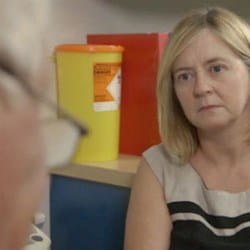UNHELPFUL GP receptionists can lead to lower patient satisfaction scores, according to new research published in the British Journal of General Practice.
A study carried out by Loughborough University found that the more patients had to push for effective service when calling GP practices, the less satisfied they were.
This so-called “burden” on patients to drive calls forward occurred, researchers found, when receptionists failed to offer alternatives to callers whose initial requests could not be met, or to summarise relevant next actions (for example, appointment, call-back, or other query) at the end of calls.
A greater patient burden was associated with decreased satisfaction levels.
Researchers noted that: “Survey-based research shows that the helpfulness of the receptionist, along with communication with the doctor, is the most important driver for satisfaction among UK patients.”
They added: “Before conducting this study, it was known that surgeries offering basically the same service differed in their satisfaction ratings. But, without looking at the data, how would one know what made the difference?”
The team received permission from the NHS to tape 2,780 incoming telephone calls to three GP surgeries in England in October 2014 and analysed 447. Neither patients nor practice staff were aware they were being recorded beyond the usual practice of call monitoring.
The burden placed on patients to push for effective service was found to vary across the sample group.
In one example, the report compares two similar calls made by patients requesting an appointment at two different practices, with each receptionist informing the patient their requested date is unavailable. However, while one receptionist quickly offers to search on a different date, the other simply confirms that “we’re fully booked this Friday” and allows the call to end without any further questioning or helpful suggestions.
The researchers noted: “Comparing the relative frequency of ‘patient burden’ across three surgeries, a strong association was found with the independent patient satisfaction scores.”
The practice with the lowest patient burden scored highest for satisfaction compared to the poorest performing practice. For example, the practice found by researchers to have the most helpful receptionists scored 88 per cent satisfaction for “experience of making an appointment”, compared to 59 per cent satisfaction in the practice with the least helpful receptionist.
The study concluded: “In the more effective calls, receptionists made alternative offers and summarised patients’ appointments or confirmed what would happen next.”
Read the study on the BJGP website
This page was correct at the time of publication. Any guidance is intended as general guidance for members only. If you are a member and need specific advice relating to your own circumstances, please contact one of our advisers.
Save this article
Save this article to a list of favourite articles which members can access in their account.
Save to library


